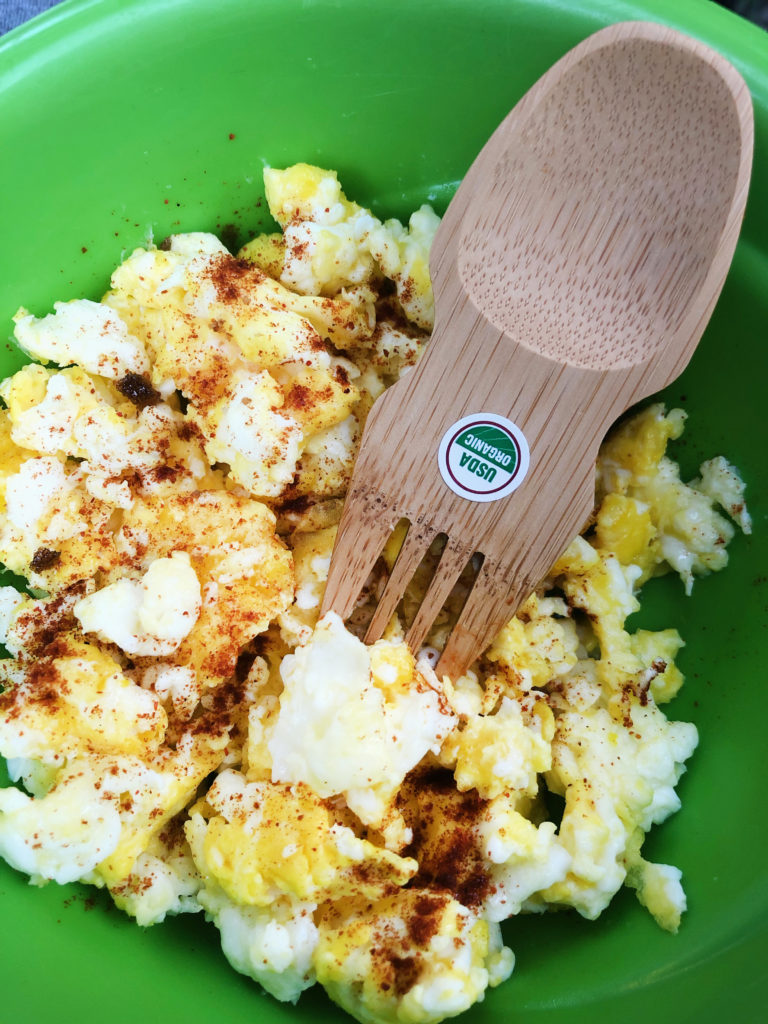This flowering grass has a hollow stem, is one of the fastest growing plants in the world, and is extremely resilient. It also is stronger than wood, brick, and concrete and has a tensile strength like steel.
Its earliest known use was as paper in China, but today it is used to make a wide variety of products, from flooring and appliances to clothing, bottles, and utensils.
Bamboo cutlery is durable, lightweight, and typically free of plastics and glues. There is a wealth of choices from small packable sporks to spoon-fork-knife sets, chopsticks, and even cooking utensils from companies like To-Go Ware and Totally Bamboo. You can also find cutting boards, plates, and more for your table and camp cooking stash.

Bamboo cups and straws are also becoming popular. Both are lightweight for carrying around in your car or bag and are pretty affordable. While straws are fairly simple, since bamboo stems already grow as hollow straws, cups, as well as plates, bowls, and other “bamboo fiber” products, are a little more complicated to produce. The bamboo fibers must be mixed with something for other products. Look for bamboo cups that have been mixed with corn products, rather than plastics, since these will breakdown more easily at the end of their life and are usually considered biodegradable.
As more and more companies and consumers discover the durability and versatility of bamboo, more products arrive on the market: helmets, toothbrushes, skateboards, musical instruments, electronic equipment cases, beer, tea, biofuel, toilet paper, coffee filters, composites, baskets, toys, and much, much more. While some manufacturing practices still involve dyes and other environmentally-detrimental processes, the industry as a whole is working towards sustainability and eco-friendly products and methods. When you can, choose bamboo.













